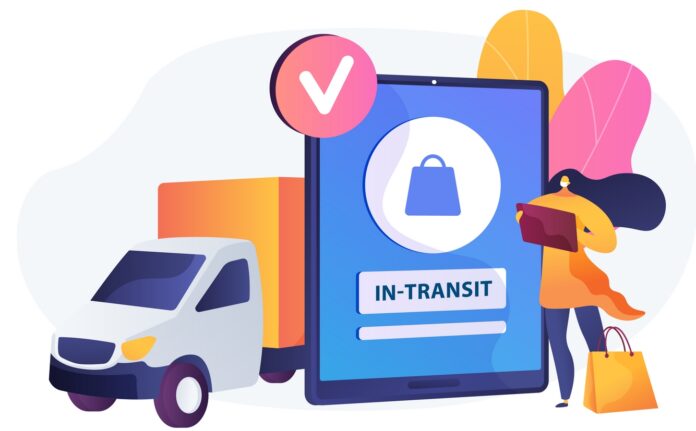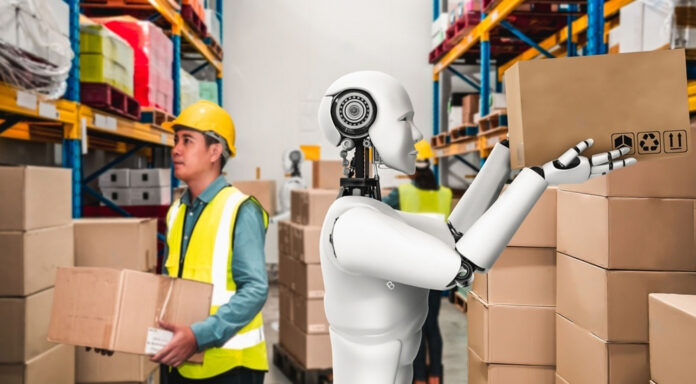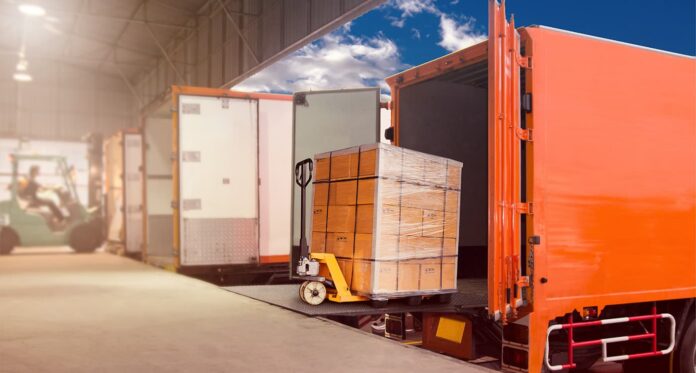Shipment tracking has become an essential aspect of the logistics and supply chain industry, enabling businesses and consumers to monitor the progress of their shipments in real-time. Over the years, advancements in technology have revolutionized shipment tracking, making it more efficient and accurate. As we look towards the future, several trends and predictions are emerging that are set to shape the industry further. In this article, we will explore these trends and predictions for the future of shipment tracking.

Internet of Things (IoT) Integration
The Internet of Things (IoT) has already made significant inroads into the logistics industry, and its integration with freight search is expected to grow even more in the future. IoT devices and sensors can be attached to packages, containers, and vehicles, providing real-time data on their location, condition, and other vital parameters. This seamless connectivity between physical objects and the digital world allows for improved quest accuracy, proactive monitoring, and predictive analytics. With IoT integration, businesses can optimize their supply chain operations, minimize delays, and enhance customer satisfaction.
Artificial Intelligence (AI) and Machine Learning (ML) Applications
Artificial Intelligence (AI) and Machine Learning (ML) technologies are revolutionizing the shipment tracking industry. These advanced technologies enable the processing of vast amounts of data and extract valuable insights and patterns that can enhance tracking accuracy and operational efficiency. Here are some key applications of AI and ML in shipment pursuit:
- Predictive Analytics: AI-powered algorithms analyze historical shipping data, weather conditions, traffic patterns, and other factors to make accurate predictions about delivery times and potential delays. This helps businesses proactively address issues and optimize their supply chain operations.
- Anomaly Detection: ML models can identify anomalies in the shipment process, such as unexpected delays, route deviations, or damaged packages. By detecting these anomalies in real time, businesses can take immediate action to minimize disruptions and ensure timely deliveries.
- Route Optimization: AI algorithms can analyze various parameters, such as distance, traffic conditions, and delivery priorities, to optimize shipment routes. This results in more efficient transportation, reduced fuel consumption, and shorter delivery times.
- Natural Language Processing (NLP): AI-powered NLP techniques enable shipment search systems to understand and analyze unstructured data, such as customer feedback or driver notes. This helps in extracting valuable insights and identifying areas for improvement in the supply chain process.
- Image and Object Recognition: ML algorithms can analyze images or video footage to recognize objects, such as packages or shipping containers. This enables automated quest and inventory management, minimizing manual efforts and errors.

Blockchain for Enhanced Security and Transparency
Blockchain, the technology behind cryptocurrencies like Bitcoin, holds immense potential for shipment tracking. Its decentralized and transparent nature can provide secure and tamper-proof records of every step in the supply chain, from the origin to the destination. Blockchain can eliminate the need for intermediaries and streamline processes such as verifying the authenticity of products, tracking ownership, and ensuring compliance with regulations. Additionally, smart contracts on the blockchain can automate payment settlements and reduce disputes between stakeholders. The implementation of blockchain technology in shipment tracking will lead to enhanced security, transparency, and trust across the industry.
Real-Time Tracking and Customer Experience
In an era of instant gratification and high customer expectations, real-time tracking has become crucial for businesses. Customers want to know the exact location and the estimated time of arrival of their freight, and companies that can provide this information in real-time gain a competitive edge. Future shipment tracking systems, such as Shipentegra tracking, will focus on improving the accuracy and availability of real-time tracking data, allowing customers to monitor their loads through user-friendly interfaces, mobile apps, and notifications. The integration of location-based services and geofencing technology will further enhance the customer experience by providing personalized updates and notifications.

Sustainability and Environmental Considerations
As the world becomes increasingly aware of the environmental impact of logistics and transportation, sustainability will play a significant role in shaping the future of freight quests. Companies will seek more sustainable transportation options, such as electric vehicles, drones, and autonomous delivery systems, which will require corresponding tracking capabilities. Cargo search systems will need to adapt to these new modes of transport and provide real-time visibility into their operations. Additionally, search systems may incorporate carbon footprint tracking and reporting features to enable businesses to measure and reduce their environmental impact.
Integration of Augmented Reality (AR) and Virtual Reality (VR)
Augmented Reality (AR) and Virtual Reality (VR) technologies have the potential to revolutionize various industries, and load tracking is no exception. In the future, AR and VR can be integrated into cargo quest systems to provide enhanced visibility and insights. For example, AR can overlay real-time search information onto physical objects, allowing warehouse workers to quickly locate and pick items for shipment. VR can be used for virtual walkthroughs of shipping facilities, enabling managers to remotely monitor operations and identify any bottlenecks or issues. The integration of AR and VR into freight search will enhance efficiency, accuracy, and decision-making processes.

Predictive Analytics and Demand Forecasting
Predictive analytics, coupled with demand forecasting, will play a crucial role in optimizing shipment tracking and supply chain operations in the future. By analyzing historical data, market trends, and customer behavior, businesses can predict future demand patterns and adjust their logistics strategies accordingly. Freight search systems will leverage these predictive analytics capabilities to optimize routes, allocate resources effectively, and proactively address potential bottlenecks or disruptions. This proactive approach will lead to improved operational efficiency, reduced costs, and better customer satisfaction.
Collaboration and Data Sharing
In the future, collaboration and data sharing among stakeholders in the supply chain will become increasingly important for effective load tracking. By sharing relevant data, such as shipment status, inventory levels, and capacity availability, businesses can optimize their operations and make informed decisions. Collaborative platforms and data-sharing ecosystems will emerge, enabling seamless communication and information exchange between manufacturers, carriers, logistics providers, and customers. This collaboration will streamline processes, reduce delays, and improve overall supply chain visibility.

Conclusion
The future of cargo tracking holds immense potential for advancements and innovations that will transform the logistics and supply chain industry. Integration of IoT, AI, and ML technologies, along with the adoption of blockchain, will enhance search accuracy, security, and transparency. Real-time tracking, coupled with improved customer experience, will become the norm, meeting the growing demands of customers for transparency and convenience. Sustainability considerations, augmented reality, and virtual reality integration, predictive analytics, and collaboration among stakeholders will shape the future of shipment tracking. As these trends and predictions unfold, businesses that embrace these advancements will gain a competitive edge in the dynamic and ever-evolving logistics landscape.









